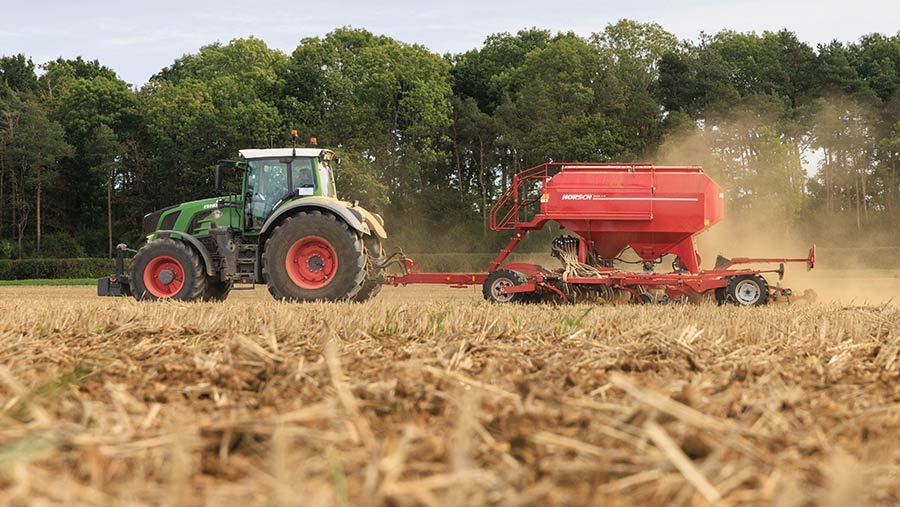Total farm incomes increase by £600m in England during 2022
 © Tim Scrivener
© Tim Scrivener Farm businesses in England had a 13% increase in incomes in 2022, despite soaring fertiliser and energy costs.
Defra has estimated the total income from farming (Tiff) in 2022 at £5.7bn, an increase of £600m on the previous year.
Total crop sales increased by 21% to total £11.4bn, while total livestock sales increased by 14% totalling £12.3bn for the year.
See also: 2022 farm incomes beat inflation challenge, Defra figures reveal
But input costs rose by almost 20% to reach £15.9bn in 2022.
One of the major drivers for both increased farming revenues and higher input costs was the war in Ukraine, which had a significant effect on global markets.
Animal feed, wheat and milk had some of the largest increase in prices year on year.
In total, agriculture contributed more than £10bn to the economy in England during 2022, according to Defra figures.
Defra farming minister Mark Spencer said a 13% increase in farming income for 2022 was promising news for the sector.
“This money will go straight to the heart of our rural economies, supporting farmers who work tirelessly to keep high-quality food on our tables,” said Mr Spencer.
“I know it hasn’t been easy, given the effect the illegal war in Ukraine has had on input costs for necessities such as feed, fuel and fertiliser, as well as global market volatilities and the challenges of our weather.”
In May, the government released its first Tiff estimates for the whole of the UK, suggesting a 16.6% rise in 2022 to £7.94bn – an increase of £1.1bn from 2021.
Commenting at the time, economists predicted a reversal of this situation in 2023, as input costs have remained stubbornly high – just 3% down on their peak in May 2022 according to consultants Andersons – while prices for commodities such as grains and milk have declined sharply since the start of the year.
Finished beef and lamb prices are also in decline.
